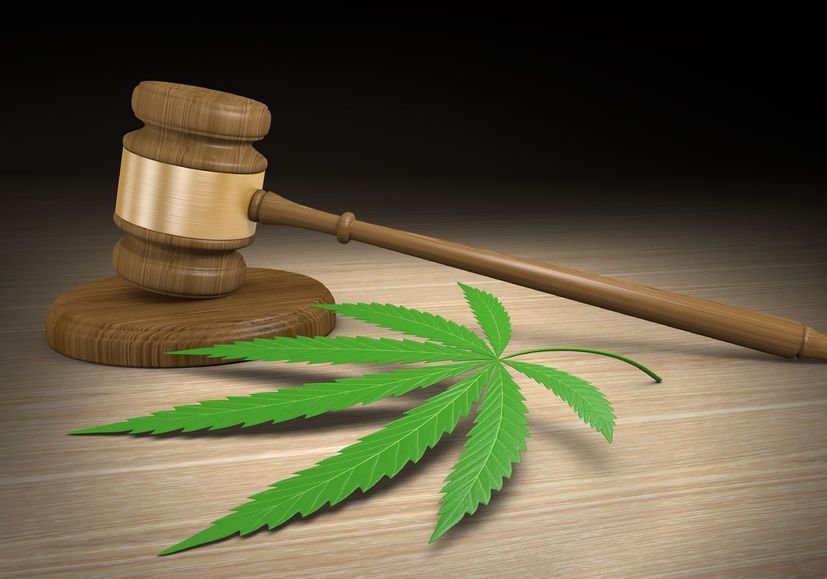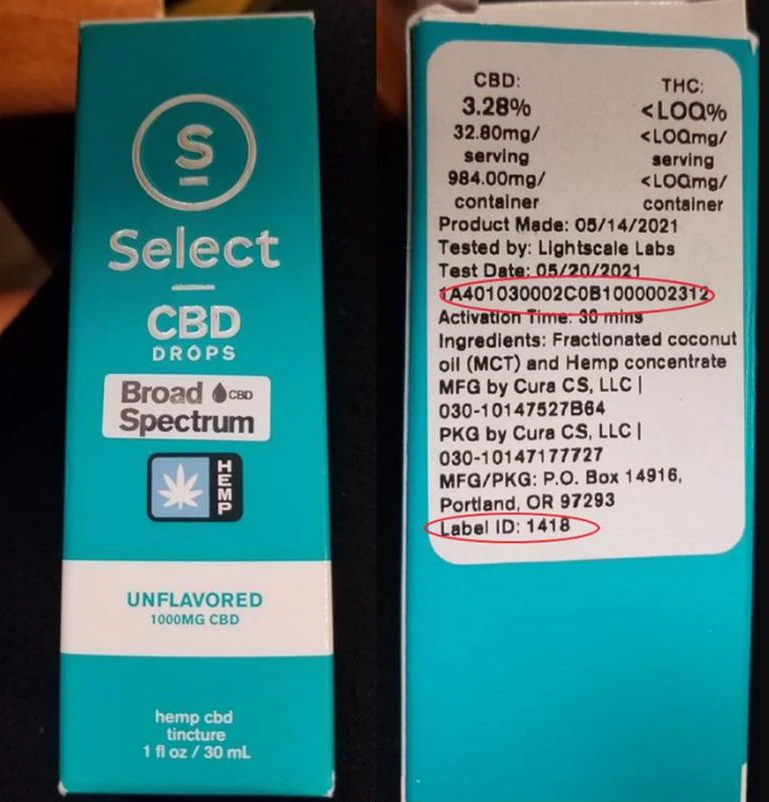Last Week In Weed Issue 49
Published December 13th 2021
In this week’s Last Week in Weed. We’ll be looking at a series of Lawsuits in Oregon involving mislabelled CBD and THC, The Isle of Guernsey granting 4C Labs the island’s first cannabis cultivation license, and finally, Fingerprints from a ‘product shot’ photo identify dealer on ‘hacked’ encrypted messenger app.
Lawsuits filed in Oregon over mislabelled CBD
A series of lawsuits in the US state of Oregon resulting from the mislabelling of high THC oil as zero THC CBD oil has come to light recently. So far nine lawsuits have been filed in the state by the same attorney against the licensed oil-producing defendant’s parent company CuraLeaf Holdings.
A tenth suit involving a wrongful death complaint is likely to join the other plaintiffs in the coming days. Michael Fuller, the Portland-based attorney who markets his service as ‘Under Dog Lawyer’ claims that his clients experienced ‘confusion, dizziness, fear of death, and psychosis after they consumed a product that was mislabeled as a CBD-only tincture.’
“We’re going to have individual trials for each person because each person’s experience and injuries are a little bit different. We’re going to try to settle as many as we can. See, a lot of my clients are elderly, in their late 70s; they have no interest in prolonged litigation.” – Micheal Fuller
So what happened? Well, it appears that at least one batch of Cura Cannabis Solution’s ‘Select’ brands CBD and THC tinctures may have switched labels. In September, The Oregon Liquor Control Commission recalled hundreds of CBD tinctures from sale as they contained “undisclosed levels of THC.” A few days later the agency recalled hundreds of THC tinctures for “drops for not having any THC in them.”
“A team member confused two containers during the filling and packaging process, one containing CBD and one containing THC. This resulted in a single batch of CBD tincture being labelled as THC Drops and vice versa. The amount of THC was within the regulatory limit for a normal batch for our THC drops, but we understand that some customers may have consumed multiple doses.” – CuraLeaf statement
‘Select’ CBD tincture that was recalled
Cura Cannabis solution has said that it has implemented new stricter controls to prevent future mix-ups. In a written response statement the company said; “We have also added a new Quality Technician position to Oregon, and have removed the individual responsible for the error during the filling and packaging process”
In 2020 Massachusetts-based Curaleaf Holdings, the world’s largest cannabis company by revenue acquired ‘Select’ brand manufacturer Cura Cannabis Solutions. CuraLeaf’s current market capitalisation on the Canadian Stock Exchange is estimated to be $8.4 billion. So I think it’s safe to say that it’ll take more than a few lawsuits to worry the international canna-giant.
Isle of Guernsey grants 4C Labs first cannabis cultivation license
The second-largest channel island Guernsey has issued its first license to cultivate ‘prescription cannabis.’ The license has been issued by the Bailiwick of Guernsey Cannabis Agency (BGCA). The body was established by the Committee for Health and Social Care to regulate the cultivation and production of ‘prescription cannabis’ products in Guernsey.
The application process began back in July 2021 following the finalising of an agreement between the island and the UK mainland government. The deal established a ‘licensing framework with the UK that is the same as Jersey’s and the Isle of Man’s, via a Memorandum of Understanding’. The Memorandum of Understanding with the Home Office forms an agreement between the Committee for Health & Social Care (CfHSC) and the Home Office to meet the terms of the [1961 UN] Convention.
There were a total of seven applications, with the 4C Labs being the only successful one. It is understood that there were concerns about security at the facilities of the other unsuccessful companies. As such the Guernsey government is encouraging them to reapply for their license once they have shored up security on site.
The announcement was made after a recent visit by the UK Home Office to assess the crown dependency island’s capabilities, infrastructure, and security. This marks a major turning point in the development of the island’s cannabis sector. Prior to the ‘memorandum of understanding,’ only CBD-rich cultivars of cannabis could be grown under license on the island.
“We’re delighted to have been able to approve one businesses’ application. The granting of the first license represents a significant success, not only for the company itself, but also for the regulatory framework we put in place and agreed with the UK. We have had seven applications, and that in itself is incredibly encouraging, and I would encourage them to reapply if they feel able to make the adjustments needed.” – Deputy Al Brouard, president of Health and Social Care
So what does this mean for the island nation and its cannabis-consuming population? Well, the granting of this license will allow the company to establish 4C Health Clinics. ‘A telehealth platform that makes access to medical cannabis simple.’ This new platform is a ‘virtual clinic’ that the company claims can provide online consultation and prescribe cannabis products to be delivered the next day. 4C Labs are hoping to have the clinic operational from July 2022.
Fingerprints from ‘Product shot’ help identify dealers on ‘hacked’ encrypted messenger app.
The final story that we’ll look at this week is a reminder of the power of technology when applied by prohibitionists authorities to the war on drugs. This latest bit of tech-scare comes from the recent news about the conviction of a pair of drug smugglers caught out by evidence found on the ‘busted’ EncroChat app.
EncroChat was a Europe-based encrypted communications network and service provider that was predominantly if not exclusively used by organised criminal enterprises and gangs to coordinate and communicate in confidence. Indeed, criminal activity was so rife on the application that the ‘French National Gendarmerie said that 90 percent of its subscribers were criminals and the British National Crime Agency (NCA) claimed it found no evidence of non-criminals using it.
The network was infiltrated between March and June 2020 as part of a coordinated Europe-wide investigation. It had approximately 60,000 subscribers at the time of its closure on June 12th, 2020, when the company decided to cease operations. Police across Europe have made so far made over 1000 arrests as a result of the evidence gathered from the hack. There are still a ton of backlogged cases pending and being processed using this evidence so there are still important revelations coming out.
The trial of two dealers in Liverpool Crown Court last week revealed that police had identified one of the men from a fingerprint taken from a photo of him holding cannabis buds. The two men initially plead not guilty to charges of conspiracy to supply £1.5 million worth of Class A and B drugs before changing their plea on the day.
“In this instance, the evidence was so overwhelming that both men changed their plea to guilty, so they didn’t have to face trial and potentially face even longer behind bars. “Today’s sentencing is further proof that crime does not pay – we will work with other agencies to stay one step ahead of these criminals, tirelessly pursuing anyone who seeks to break the law and exploit vulnerable people in our communities to line their own pockets” – Detective Inspector Mike Dalton of Merseyside Police
Written By Simpa For The Simpa Life




